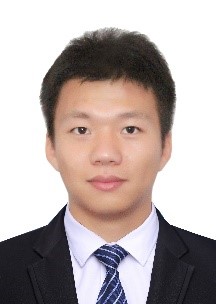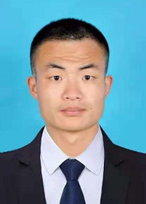Introducation: The rapid evolution of modern industry demands transformative approaches to address inefficiencies and limitations in traditional industrial inspection, which relies on error-prone manual processes and struggles with complex operational environments. Intelligent detection, diagnosis, and monitoring systems, powered by advancements in AI, machine vision, and IoT, have emerged as critical enablers of industrial automation, offering unprecedented capabilities in real-time defect identification, predictive maintenance, and adaptive process optimization. These technologies not only enhance productivity and precision but also address urgent safety and sustainability imperatives in high-risk sectors such as energy, aerospace, and advanced manufacturing. Despite progress, significant challenges persist, including the integration of multi-modal sensor data, the generalization of algorithms across fragmented industrial scenarios, and reliable defect detection under small-sample conditions. Furthermore, bridging the gap between theoretical AI models and practical deployment constraints—such as computational efficiency, explainability, and human-machine collaboration—remains a pressing research frontier.
This Special Session will focus on cutting-edge innovations spanning intelligent sensing, edge-cloud collaborative frameworks, domain Adaptation, 3D vision-guided robotics, and self-optimizing monitoring systems. It will also emphasize interdisciplinary synergies between computational methods (e.g., deep learning, digital twins, transfer learning) and domain-specific industrial applications, such as smart grids, precision machining, new energy, and hazardous environment monitoring.
By convening experts across academia and industry, this session aims to catalyze knowledge exchange, address technical bottlenecks, and accelerate the translation of research into robust, real-world systems that advance both industrial competitiveness and societal well-being.
Organizer(s):

Jiwang Zhang, China Special Equipment Inspection & Research Institute, China
Jiwang Zhang, a Senior Engineer at China Special Equipment Inspection and Research Institute (CSEI), holds a Ph.D. in Safety Science and Engineering from China University of Petroleum, Beijing (2018). Specializing in rotating equipment condition monitoring and fault diagnosis, he is a promoter in blade tip timing (BTT) vibration monitoring technology. With 20+ peer-reviewed papers on BTT algorithms and diagnostics and 12 authorized patents for advanced monitoring systems. As a Senior Member of the Chinese Society of Vibration Engineering and Member of the China Society of Safety Science and Technology, he bridges academic rigor with practical engineering applications.

Huizhou Liu, Hainan University, China
Huizhou Liu received the B.S degree and Ph.D. degree in safety science and engineering from China University of Petroleum (Beijing), Beijing, China, in 2017 and 2022 respectively. From Octorber 2020 to Octorber 2021, He was a visiting research scholar with the Department of Electrical Engineering, Technical University of Denmark, Denmark.He is currently a lecturer with the school of Information and Communication Engineering, Hainan University, Haikou, China. His current research interests include intelligent detection, fault diagnosis, multi-source information fusion and computer vision.

Yulin Ma, Hebei University of Technology, China
Yulin Ma received the B.S degree from Qingdao University of Technology, Qingdao, China, in 2017, M.S degree from China University of Petroleum (Beijing), Beijing, China, in 2020, and Ph.D. degree in system engineering from Beihang University, Beijing, China in 2024. He is currently a lecture with the school of Electrical Engineering, State Key Laboratory of Intelligent Power Distribution Equipment and System, Hebei University of Technology, Tianjin, China. His current research interests include fault prognostics and health management, transfer learning, and fault diagnosis.
Please submit your manuscript via Online Submission System
Please choose "Special Session 3. Intelligent Detection, Diagnosis, and Monitoring in Industry"